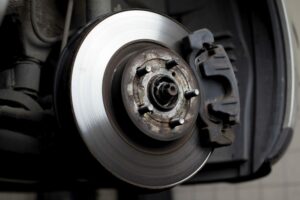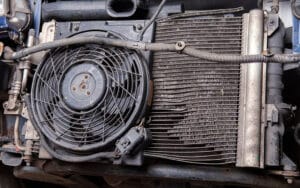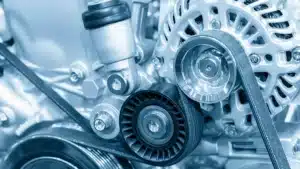Five Reasons for Excess Oil Consumption

Figure of Excess Oil Consumption
Excess Oil Consumption: We are all aware that the primary function of oil is to lubricate engine parts to ensure smooth operation. A specific amount of oil consumption is what an engine experiences under typical circumstances.
Every 5,000 miles of driving, contemporary engines should need less than 1/2 quart of oil. Most contemporary cars use significantly less fuel. Most car engines will function just fine with this little oil because it is not a large amount.
However, there are still events that can occur to alter this oil usage by increasing the engine’s oil requirement.
Top 5 Causes of Excessive Oil Use in Engines
Excess Oil Consumption: worn gaskets or seals

Your car will probably be dripping oil if the valve cover gasket or crankshaft seals are worn out or damaged. When that occurs, your engine will start to lose oil while you’re driving. This implies that in order to prevent engine damage, you must regularly top off the engine oil.
Excess Oil Consumption: Poorly Made Oil

Your oil will begin to burn if you use the incorrect kind of oil in your engine or if it is simply too old and gather a lot of grit and debris.
More significantly, the oil’s state will prevent it from adequately lubricating the engine’s parts. The engine will have to use more oil as a result of this.
Change your engine oil as soon as possible if it is dark brown or black in color. It’s a simple DIY project. New oil, an oil filter, an oil drain pan, auto ramps, a wrench, and around 20 minutes are all you need.
Excess Oil Consumption: Worn Piston Rings

Oil will able to seep through worn-out or damage piston rings and into the internal combustion chamber. As a result, the oil will burn and carbon deposits will build up on the cylinders and piston rings.
Excess Oil Consumption: High Oil Pressure

High oil pressure causes excessive volumes of oil to flow through the engine. This oil will probably drop to the cylinders and burn up there. This excessive oil pressure can the result of an incorrect setting on the car’s main computer. Overfilling the oil pan during an oil change is a comparable issue.
Excess Oil Consumption: Old Engine

Your engine will perform optimally throughout the first five years of its lifespan. Because its parts are still young and robust, these are the years when the engine will use the least amount of oil. However, when enough miles have put on your engine, the various seals and gaskets will start to wear out and start to leak in small amounts.
This implies that the engine will simply use oil more quickly. Additionally, older cars have tighter tolerances where parts link, which can allow oil to enter places where it wouldn’t be able to in more recent models.
Excess Oil Consumption: Synthetic Oil

Synthetic oil typically provides superior engine lubrication than regular oils. However, because they are made differently from natural oils, synthetic oils have unique flow characteristics. This indicates that synthetic oil can occasionally fit through smaller gaps than normal oil.
Synthetic oil can frequently be the cause of high oil consumption and a low oil level if you have an older engine or seals and gaskets that are beginning to fail. Any little leaks can frequently stop by switching to common oil.
How to Stop Using Too Much Oil
If you simply pay attention to the oil you’re using and all the components that function with it, the majority of these problems are fixable and preventable.
If your vehicle has an outdated engine, you should seriously consider trading it in for a newer model with a new engine. Since so many other parts could possibly fail, it makes no sense to invest thousands of dollars merely to replace the engine of an old vehicle.
Regarding the other causes, merely keep in mind to use the high-quality oil that the maker of your car has advised. As soon as you find any oil leaks, fix them, and replace your piston rings and valve stem seals as necessary.
Your engine’s oil consumption should under control if you heed our advise.
FAQ
What occurs when oil is ingested in excess?
Your digestive system will under additional strain as the amount of fat increases. Digestion issues including nausea, bloating, diarrhea, and stomach pain can buy on by consuming too much oil. Gaining weight: The high calorie content of fatty foods can lead to weight gain.
What are the three reasons that people utilize oil?
When oil consumption issues are addressed, it frequently turns out that a leak is the cause either a leak in the valve cover gasket, a leak in the crankshaft seals, or a leak in one of the main seals. The leaking could potentially be brought on by a faulty gasket in the pan.
When is too much oil used?
Anything above the MAX mark on the dipstick is excessive if you want to be safe. However, there is typically nothing to worry about if you overfilled the oil by half a quart or less. However, it’s time to drain some oil if the oil level is 0.2 inches or more above the maximum point on the dipstick or you notice froth on it.
How much oil should one typically consume?
Most manufacturers deem one quart of oil to be sufficient for 1,500 miles or less. It should note that certain high-performance cars will use a quart of oil in less than 1,000 miles and are still regarded as appropriate.
Editor’s choice:
The top 10 most frequent reasons for a flat tire







